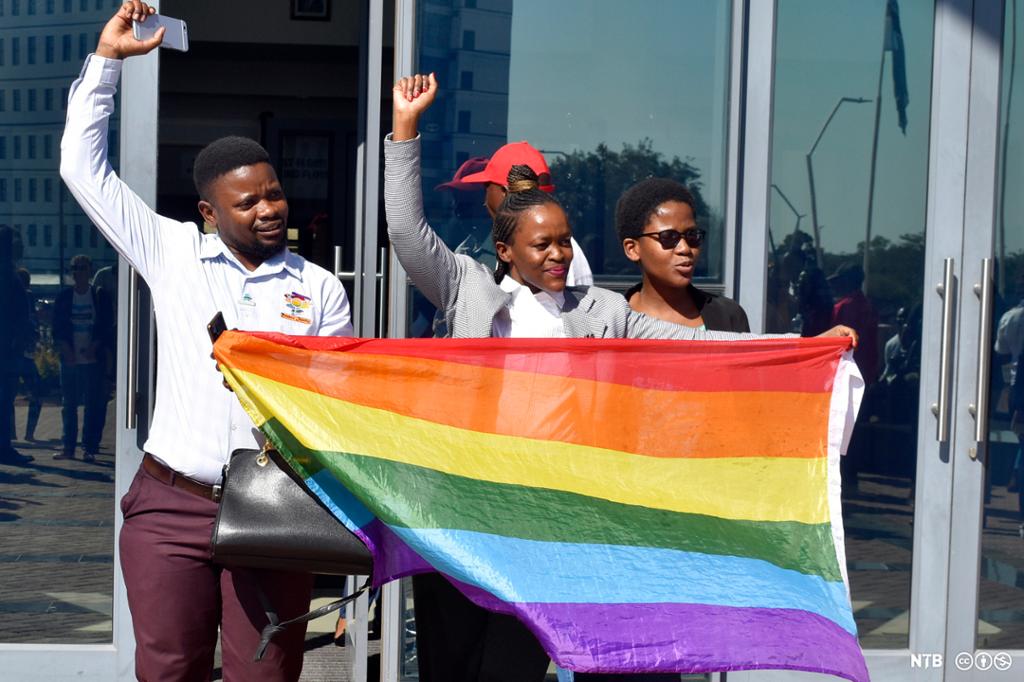LGBTQ+ Rights in Botswana

In Botswana, the colonial laws outlawing acts of homosexual sex have been largely dormant. Several presidents and other politicians have taken a pragmatic approach to the issue, not wanting to stir up trouble by changing the law, but not wanting to let it stand in the way of the battle against HIV/AIDS.
However, the law has stood in the way of LGBTQ+ organisations' right to register, and when the law is on the books, it takes very little to have it implemented should the political climate change. People have lived in fear of being arrested, and the law meant that gay people could not bring cases of harassment to the police. As politicians have been unwilling to touch the issue, the LGBTQ+ movement took this matter to the courts.
The first step was legalising organisations, to have a stronger platform from which to fight. In 2016, the Botswana High Court ordered the government to register the main LGBTQ+ organisation, LEGABIBO. The judgement said that laws prohibiting some sexual acts do not criminalise homosexuality, and that sexual minorities have the same rights as anyone else. Botswana also has a progressive labour law that protects employees from discrimination due to sexual orientation.
In 2017, the High Court ruled that transgender people have a constitutional right to change their legal gender. The court found that by refusing to change the plaintiff’s gender on his identity document, Botswana’s Registrar of National Registration had violated several of his basic human rights.
Later in the same year, a transgender woman in Botswana won the right to be legally recognised as a woman on her official identification documents, after having been denied this by the Civil and National Registration Officer in 2011. These victories gave hope of establishing further progress through the court system.
The following year, Letsweletse Motshidiemang, a student at the University of Botswana, filed a petition to the High Court questioning the constitutionality of the laws making homosexual acts illegal. In June 2019, the court responded by unanimously striking down the colonial-era law.
The Botswana constitution states that every person in Botswana is "entitled to the fundamental rights and freedoms of the individual, that is to say, the right, whatever his race, place of origin, political opinions, colour, creed or sex". The court ruled that 'sex' should be interpreted to include sexual orientation. The judge stated that "Human dignity is harmed when minority groups are marginalised."
In 2021, the government unsuccessfully appealed the decision, arguing that this was a political issue that should be decided by Parliament, not by the courts. In January 2022, after losing the appeal to overturn the ruling, President Masisi invited representatives of the LGBT community to assure them that he would respect the court's decision and protect their rights, stating that "we ask and expect everyone to respect the decisions of our court". He also explained that the appeal had been motivated by political concerns and not by animosity towards them, arguing that Botswana is a "rather conservative society". The invitation by the president was seen by many as a turning point, giving hope for future fights for civil rights, such as marriage, adoption, etc.